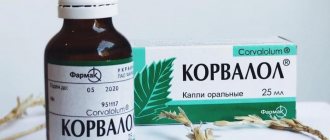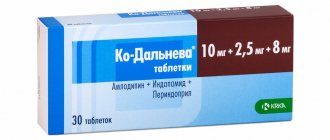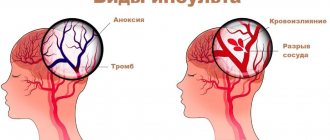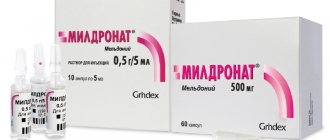Indications for use
The medication in solid form is prescribed for the following symptoms:
- increased irritability;
- vegetative-vascular dystonia;
- hypertensive diseases;
- disturbed sleep;
- spasms of the coronary vessels.
Drops are effective for conditions such as:
- central nervous system disorder;
- neurotic state;
- mildly disturbed heartbeat;
- disturbed sleep.
What are barbiturates?
This is a class of medications based on barbituric acid that have a depressant effect on the nervous system. They have an anticonvulsant, sedative, and sedative effect, relieve anxiety attacks and relax smooth muscles.
Occasional techniques for quickly stopping tachycardia or increased irritability do not produce pathological changes. But, with constant consumption, tolerance to the active substance develops; to obtain a therapeutic result, an increase in the norm is necessary.
Gradually the person becomes dependent on the medicine. Discontinuation causes withdrawal syndrome, accompanied by unpleasant symptoms. In terms of intensity, addiction is equivalent to a drug; uncontrolled use has adverse consequences. Common medications containing barbiturate: Corvalol, Valocordin, Valoserdin, Milocordin.
Instructions for use
Pills
The medication is placed under the tongue when a quick effect is needed, or orally.
Corvalol can be taken 2 times a day, no more than 2-3 tablets.
The permissible single dose is 1 tablet; in case of urgent need, the dose can be increased to 3 tablets.
Drops
Dilute 15-25 drops of Corvalol in 50 ml of liquid. For tachycardia, the permissible single dose can be no more than 50 drops.
Depending on the age category and clinical situation, children are prescribed from 5 to 15 drops per day.
The length of treatment will depend on the indications. Sometimes a one-time use is enough. In some situations, drops/tablets should be taken 3 times a day. The duration of therapy is determined by the doctor, taking into account the therapeutic characteristics of the drug and its tolerability.
Literature:
- Adverse reactions when using valerian and corvalol preparations: analysis of spontaneous reports / Morokhina S.L., Alyautdin R.N., Kaperko D.A., Shubnikova E.V., Snegireva I.I., et al. / 2021 / Safety and the risk of pharmacotherapy.
- Problems of drug interactions in the treatment of patients with arterial hypertension / Pyrochkin V. M., Snezhitsky V. A., Mironchik E. V., Zaretsky P. L. / 2008 / Journal of the Grodno State Medical University.
- Modern medicines. From A to Z: your home pharmacy / [comp. I. A. Koreshkin]. - Moscow: OLMA Media Group, 2009. - 766 p.
Contraindications
For two types of medicinal drugs:
- acute renal and liver failure;
- lactation period;
- epilepsy;
- excessive sensitivity to the drug.
Tablets are also contraindicated in the following cases:
- lactose indigestibility;
- acute form of chronic heart failure;
- lack of glucose-galactose malabsorption;
- susceptibility to bromine;
- pregnancy.
Adverse reactions
Corvalol in tablets and drops can cause negative effects:
- dizziness;
- excessive sleepiness;
- loss of performance;
- rash, itching;
- gastrointestinal disorder;
- labored breathing.
With prolonged use of the drug, there is a possibility of accumulation of bromine in the body, disruption of osteogenesis, development of symptoms of bromism, such as rhinitis, acne, conjunctivitis, lacrimation, stress, depression of the central nervous system.
Negative consequences, as a rule, disappear without a trace after reducing the dose or completely stopping the drug.
"Corvalol": composition and action
Corvalol is a non-prescription drug and is usually available in pharmacies.
The drug is available in tablet form and liquid bottles. The composition of the drug contains:
- BROM - helps lower blood pressure, nasal, calming, has the ability to relieve seizures;
- Phenobarbital - belongs to the category of antipileptic substances contained in the drug in a minimal dose, has a calming and hypnotic effect;
- Perspective essential oil receptors acting on blood vessels and calming.
In addition to the main components, there are additional substances whose concentration varies depending on the release form.
After entering the body, the active elements lead to weakening of the walls of blood vessels, they act anti-modernly and expand on the blood vessels.
Corvalol has a clear calming effect. In the central nervous system, brain cell reaction processes occur during its intake. As a result, heart rates come to slow down, which ultimately leads to a decrease in blood pressure.
Overdose
Overdose symptoms:
- low blood pressure;
- excessive excitability;
- lethargy;
- unclear consciousness.
In case of a severe overdose of the substance, rapid heartbeat, arrhythmia, respiratory problems, and in rare cases, coma or severe outcome may be observed.
In case of side effects, you should stop taking Corvalol, rinse your stomach, eliminate caffeine from your daily diet, and give up nicotine.
special instructions
The presence of phenobarbital in the drug sometimes contributes to the development of syndromes such as Steven-Johnson or Leilla, which is especially important at the initial stage of taking the drug. Ethanol and phenobarbitol are the main components of the drops, their turnover is 55%. The alcohol concentration in small doses is 250 mg, which corresponds to 6.5 ml of beer. While taking the drug, the following are possible:
- dizziness;
- lethargy;
- drowsiness;
- violation of coordination of actions.
During the period of treatment with the drug:
- It is prohibited to drink alcohol;
- It is not recommended to engage in potentially dangerous activities, including driving.
You can buy the drug at any pharmacy. Tablets and drops in containers of 15 and 25 ml are available without a prescription. Vials containing 50 ml of the substance are sold with a prescription.
The shelf life of drops is 2.5 years, tablets - 24 months from the date of production.
The medication should be stored at room temperature.
The effect of Corvalol and what it helps with
The main effect of the drug is a sedative effect. Additional actions include dilating small blood vessels, relieving spasms, and reducing muscle tone. The benefit (therapeutic effect) of Corvalol is its rapid sedative and analgesic effect. This is useful for reactions to stress and mental trauma, neurotic conditions, and all types of psychosomatic diseases: hypertension, palpitations, asthma attacks, a feeling of a lump in the throat, irritable bowel syndrome, itchy skin and rashes.
Corvalol is not classified as a potent drug (despite the fact that it contains them) and therefore can be easily purchased at a pharmacy without a doctor's prescription. According to the DSM Group and the RBC portal, Corvalol is one of the best-selling drugs in the country in terms of the number of packages, second only to some painkillers.
According to surveys of doctors, it is extremely rarely recommended for use for therapeutic purposes, and only as a one-time (one-time) dose. From which we can conclude that the majority of purchased Corvalol is not used as prescribed by a doctor.
What is the reason for such a widespread use of Corvalol (and its analogues - valocordin, valoserdin)?
In our opinion, there are three main reasons
- Long-term history of admission. The drug has been known since “Soviet times”. Due to the fact that phenobarbital in combination with alcohol has a strong inhibitory effect on the nervous system, after taking Corvalol, the severity of symptoms of psychosomatic origin decreases. This is where the illusion arises that the drug helps with almost all diseases: from hypertension to alcohol hangover, from heart pain to seizures. That is, due to the specificity of its action, Corvalol can cause relief (albeit temporary) in many painful conditions.
- Lack of accessible, reliable other sedatives. Psychiatric illiteracy of the population. Low appeal to psychotherapists and psychiatrists. Often, with many mental disorders caused by overexcitation of the nervous system (reaction to stress, neuroses, psychosomatic diseases, insomnia, etc.), people do not turn to a specialist psychotherapist, but tend to seek relief by taking some kind of universal sedative.
- A large number of people dependent on Corvalol. Also, people with alcohol addiction often use alcohol-containing medications as a substitute for alcoholic beverages, using Corvalol, Valocordin, tinctures of hawthorn, valerian, motherwort, etc. Dependence on Corvalol has all the signs of drug addiction: mental, then physical dependence on Corvalol is formed. According to the observations of psychiatrists and psychiatrists - narcologists, there are a lot of Corvalol addicts among adults and elderly people.
Drug during pregnancy
The instructions indicate that Corvalol tablets and drops are contraindicated for use while pregnant.
The use of the drug in the 1st trimester of pregnancy can negatively affect the development of the fetus, and in the 3rd semester it can provoke a disorder of the respiratory system of the newborn.
If there is an urgent need to take the drug during pregnancy, Corvalol can be used in minimal quantities. However, if possible, it is advisable to stop taking the drug.
Danger and side effects
The instructions indicate that during treatment with a sedative drug it is prohibited to drink alcohol-containing drinks. The active ingredients are not compatible with ethanol. With the simultaneous presence of alcohol and barbituric acid in the body, the risk of dangerous pathologies increases.
External manifestations of poisoning with barbiturate and alcohol-containing drinks are shallow breathing, severe headache, and loss of coordination. Drowsiness or insomnia develops, inhibition of reactions or increased excitability is observed, and blood pressure sharply decreases.
Negative consequences:
- Liver dysfunction. The medication increases the hepatoxic effects of ethanol, the liver stops purifying the blood of toxic substances.
- Increased mental disorders. A sedative in combination with alcoholic depression leads to the appearance of suicidal thoughts.
- Hallucinations. Phenobarbital in combination with alcoholic beverages leads to the development of alcoholic delirium. The pathology is accompanied by false visions, thinking disorders, and fever.
- Fainting. When taking sleeping pills after prolonged drinking, blood pressure can drop sharply and the heart rate slows.
- Respiratory depression. Barbituric acid enhances the inhibitory effect of ethyl alcohol on the respiratory centers of the brain. In case of an overdose or a high concentration of hydroxyethane in the blood, death may occur due to respiratory arrest.
With prolonged therapy, bromine accumulates in the body, which leads to disruptions in the functioning of the central nervous system. Manifestations: unsteady gait, slow speech, memory problems; colitis and constipation develop against the background of slower peristalsis. Erectile functions are impaired in men.
When using sleeping pills for 2 weeks, dependence is formed. The positive effect of the drug decreases, sleep is disturbed. Withdrawal syndrome is accompanied by withdrawal symptoms; withdrawal symptoms are superimposed on the symptoms of a hangover.
With a daily dosage of 150 drops, severe poisoning occurs. If you drink 50–100 ml of alcohol after 100 drops of the medicine, death can occur.
Severe poisoning is indicated by disturbances in breathing and heart rhythm, the skin of the face and body acquires a bluish tint, which indicates the rapid development of heart failure. If dangerous symptoms appear, you must urgently call an ambulance. Without medical help, the likelihood of cardiac arrest and death of the patient is quite high.
Benefits and harms
Everyone knows for what purpose the drug is taken. The effectiveness of Corvalol has been proven by many years of practice. However, recently information has begun to appear that the substance not only heals, but also causes harm to health.
Since the drug contains an antispasmodic - ethyl bromizovalerant, which, taking into account the dosage, can have a hypnotic or sedative effect on the body.
Phenobarbital, which is included in the composition, does not have a hypnotic effect, however, when taking the usual dose, it dilates blood vessels.
Peppermint oil can provoke a spasmodic reaction and dilate blood vessels. With an increased dose, it causes constipation and disrupts the functioning of the gastrointestinal tract.
With long-term use of the drug in large doses, phenoborbital leads to an unsteady gait, speech impairment, memory loss, and causes neurological disorders.
Consequences of co-administration
With prolonged abuse of alcohol-containing products, ethanol constantly enters the body. The liver does not have time to process toxic metabolites, and acetaldehyde begins to accumulate. Phenobarbital activates the synthesis of liver enzymes, which are necessary for the breakdown of ethyl alcohol to acetaldehyde.
If you take Corvalol when you come out of binge drinking, the duration of the detoxification phase increases. The symptoms of a hangover do appear milder, but abstinence lasts longer. In addition to pleasant relaxation, sound sleep and apathy, all detoxification processes slow down. Toxins are not eliminated, the hangover lingers, and liver dysfunction develops.










